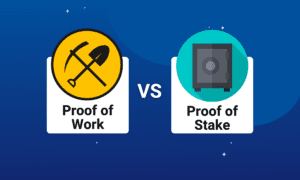Dubai continues to attract entrepreneurs and companies from around the world, and choosing a mainland setup offers clear advantages. While free zones are often recognized for their tax benefits, a mainland business provides greater flexibility and unrestricted access to the UAE market.
With a mainland license, companies can trade locally, compete for government contracts, and establish offices anywhere in the country. This setup supports business growth both within the Emirates and internationally. Combined with Dubai’s strong infrastructure, evolving legal system, and dynamic economy, the mainland model offers a stable foundation for long-term success.
In this article, we explore how a mainland business setup can open new doors and align with Dubai’s broader vision for global economic leadership.
Freedom to Trade Without Geographic Restrictions
One of the most immediate benefits of a mainland company in Dubai is the ability to operate across the entire UAE. Businesses established in free zones are generally limited to operating within the zone or internationally, unless they work with a local distributor. Mainland companies, by contrast, can trade directly with both the public and private sectors throughout the UAE without needing intermediaries.
This unrestricted access is crucial for businesses that rely on regional networks, retail operations, or require a physical presence in different emirates. Whether it’s opening multiple branches or delivering services across the UAE, the freedom to move and operate across the country adds practical value that free zones cannot match.
Eligibility to Work With Government Entities
Mainland businesses in Dubai are allowed to bid for government contracts, a key advantage that often goes unnoticed by first-time investors. Government contracts, particularly in infrastructure, healthcare, logistics, and IT, represent a significant share of Dubai’s economic activity. Free zone companies are typically excluded from these tenders unless they form a special agreement with a mainland entity.
For businesses that plan to work in sectors like engineering, construction, consulting, or public sector technology, mainland registration offers access to a much larger playing field. These contracts not only provide revenue but also enhance a company’s credibility and open doors for future growth.
Greater Flexibility in Office Location
Office location is often a strategic decision, and with a mainland license, business owners are not tied to a specific zone. Unlike free zone entities that must lease office space within designated areas, mainland companies are free to choose their office space anywhere in Dubai or other emirates.
This flexibility allows businesses to situate themselves closer to clients, partners, or logistics hubs, depending on their operational needs. It also opens the door to cost-saving opportunities by allowing businesses to select office spaces based on budget and access rather than regulatory obligations.
Ability to Expand and Scale Freely
When it comes to scalability, mainland business setup makes future expansion much easier. A business can open multiple branches across the UAE and hire an unlimited number of employees. This is particularly important for service-based businesses, retail chains, or manufacturing units that expect to grow quickly or diversify operations.
Furthermore, the UAE’s updated commercial laws allow 100% foreign ownership in many sectors for mainland companies, significantly simplifying the setup and growth process. This change has removed one of the previous barriers that made free zones more attractive, giving mainland companies a competitive edge without compromising on ownership rights.
At this stage, many entrepreneurs consider partnering with experienced business setup consultants to ensure smooth navigation through Dubai’s legal and procedural landscape. Worldwide Formations is one such service provider that helps businesses establish a compliant and future-ready presence in the mainland, offering tailored solutions based on business size and activity.
Streamlined Visa Allocation for Employees
Another key benefit of a mainland setup is the streamlined process for issuing employment visas. Since the number of visas a company can sponsor is often linked to the size of its office space rather than capped arbitrarily, businesses have more control over workforce planning.
Mainland companies are not only able to hire more easily, but they can also onboard employees from any part of the world, thanks to Dubai’s efficient immigration procedures. This flexibility is especially useful in industries where staff mobility and quick onboarding are critical to operations.
Access to Dubai’s Local Market and Consumer Base
Dubai’s local market includes a diverse and growing population with high consumer spending power. For retail, hospitality, medical, and personal service providers, this market can be a valuable source of consistent revenue. A mainland business license is essential for those who want to establish a local presence and reach customers directly.
Being visible and accessible in the local market also enhances brand recognition and allows companies to build long-term relationships with their customer base. In many industries, the ability to offer face-to-face service is not just a preference but a necessity.
Strong Legal and Regulatory Environment
The UAE has made major strides in enhancing its legal infrastructure for businesses. From updated commercial laws to more robust intellectual property protections, Dubai’s mainland legal system is aligned with international standards, offering a stable environment for operations.
Moreover, mainland businesses are regulated by the Department of Economic Development (DED), which provides clarity on licensing, renewals, and sector-specific regulations. This transparency is particularly valuable to foreign investors and startups who want to operate in a predictable legal environment.
Taxation and Financial Reporting
While free zones often market themselves for offering zero tax, it’s important to note that Dubai’s corporate tax regime applies uniformly across most sectors as of recent reforms. This means that the tax advantage of a free zone is no longer as pronounced in all cases. Mainland companies can now structure themselves with a clear understanding of the UAE’s tax framework, including the ability to benefit from double taxation treaties that the UAE has signed with various countries.
For international businesses seeking a reputable jurisdiction with a legitimate tax framework, Dubai’s mainland option offers a balanced mix of benefits without running into complications related to offshore operations.
A Future-Proof Choice in a Rapidly Growing Economy
Dubai is not only a major business hub today, but it is actively building itself into a future-ready economy. Initiatives like Dubai Vision 2030, smart city infrastructure, and a growing digital economy make it an attractive location for innovation-led companies. Businesses operating on the mainland are in a prime position to participate in and benefit from this evolution.
The ability to partner with public and private institutions, access regional and international markets, and stay aligned with policy developments gives mainland companies an edge that’s hard to ignore.
Conclusion
A mainland business setup in Dubai provides an extensive range of operational advantages that go beyond the basic appeal of owning a company in a global city. It is about access, access to markets, opportunities, scalability, and long-term stability. With changing laws supporting full ownership and increasing transparency in governance, this model has evolved into a sustainable option for those aiming to establish a meaningful presence in the UAE and beyond.
For those seriously considering a Dubai-based venture, understanding the full scope of benefits offered by a mainland setup is the first step in making a grounded, long-term business decision.



































